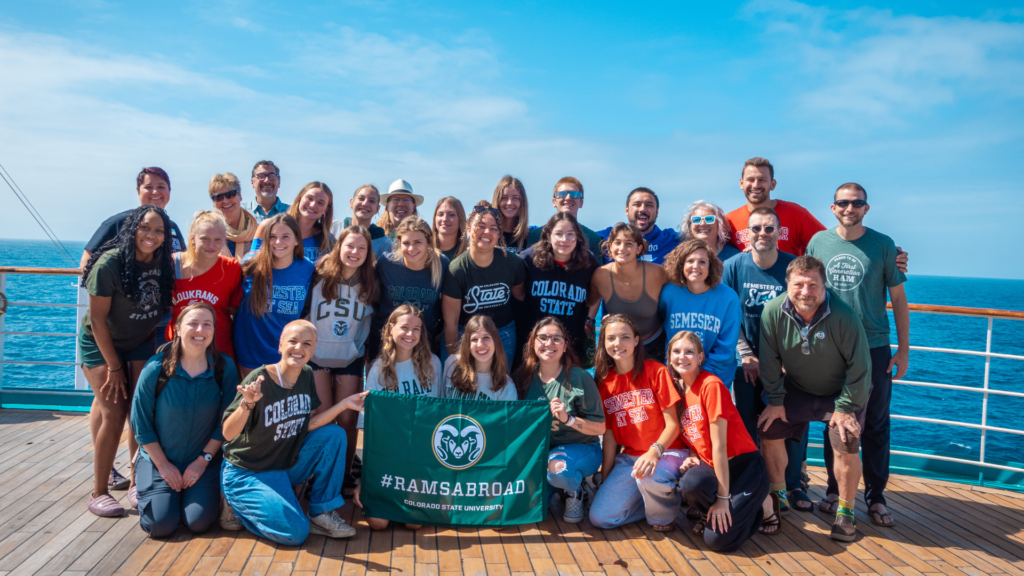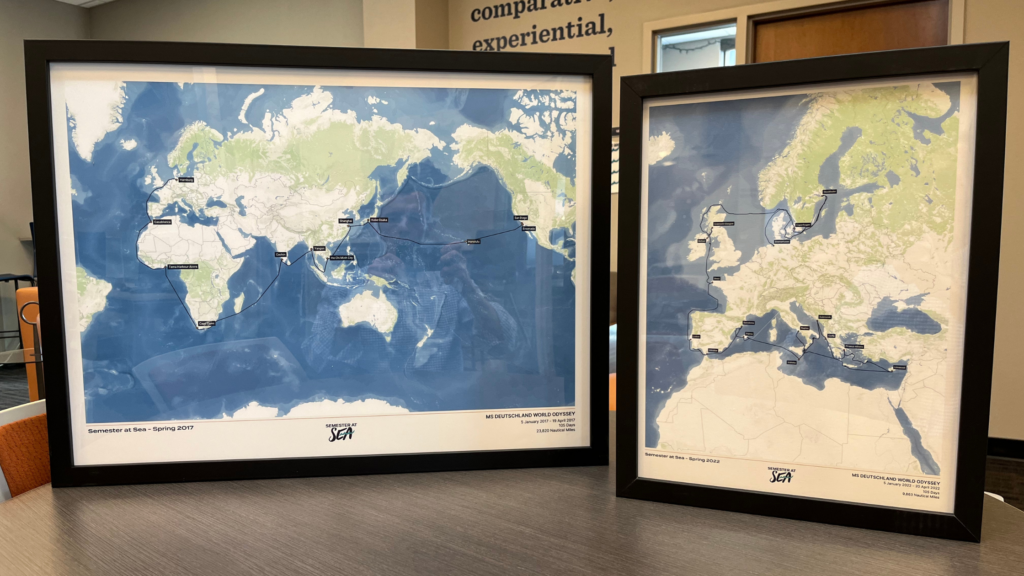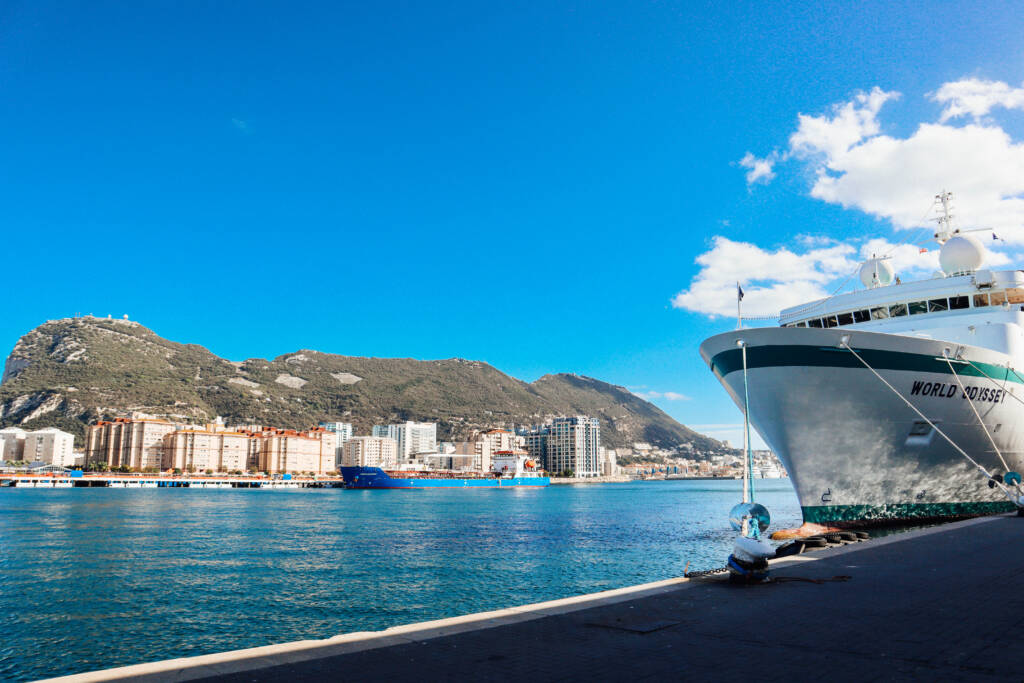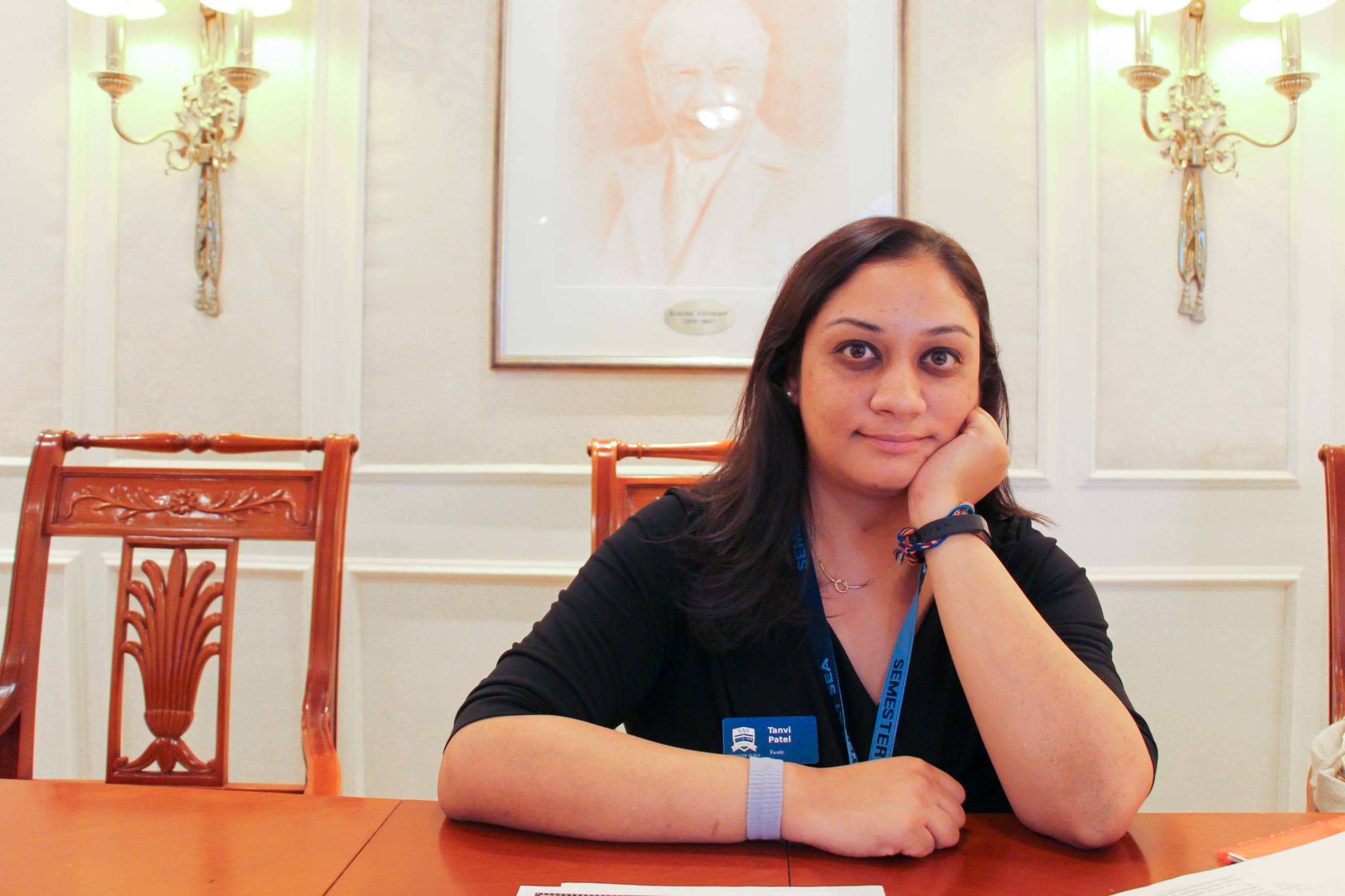
Tanvi Patel, Ph.D.
Tell us a little bit about your life story.
“I was born in Mumbai. I lived there in my grandfather’s house with my parents until I was four. In Mumbai, it’s very communal, so you live with all of your family on your dad’s side. Then my dad got a job in Los Angeles so we moved to L.A. and I grew up there. I went to undergrad at UCLA for a Bachelor’s in Economics and a Bachelor’s in English Literature. I was writing a lot of poetry at the time so I submitted poems to a graduate program. They select five people a year and I got in, so I went to San Diego State for an MFA in Poetry. After, I got my Ph.D. and another Master’s Degree at the University of Washington in Seattle. I was in school for a long time, but I think that’s a really great way to spend your twenties. I graduated and went to work at UC Merced for three years and now I’m at California Lutheran University.”
What started your interest in writing?
“I think poetry was kind of natural. I just started writing stuff down. I hadn’t taken a poetry class, but I was feeling things and trying to figure out life as an undergrad, so I recorded a bunch of stuff. No one ever read it, but when I submitted it to the grad program and they admitted me, I thought maybe there’s something to it. I kind of just picked on that strand and pulled it. I really enjoyed thinking about words, reading, and discussing what I was reading with other people. I think of my own classes as a big book club. I am the teacher but I want to learn from them. They come with a different perspective, so we just chat. I learn just as much as they do. That kind of thing fuels me.”
What inspired you to do Semester at Sea a little over two years ago?
“I got an email from a University of Virginia professor who was a recruiter at the time and he asked me to apply, so I did. I got a call from the dean a couple days later and that was the end of it. I had heard of Semester at Sea as an undergraduate but it’s kind of this thing that came in and out of my head because I realized it was very expensive for my family and it would never happen. Then this opportunity presented itself and I jumped at it.”
Why did you choose to sail on another voyage?
“I think the Fall ’14 voyage was really transformative. It widened the way that I look at the world. It was hard, but it pushed me to be my best. Like everyone says, the ship becomes your favorite port in a lot of ways. Some of my best friends came out of my Fall ’14 voyage and we have a shared language that I can’t have with anyone else. I’d like to have that kind of thing again and again.”
What do you have planned for your field class?
“For my class, International Crime and Fiction Literature, we are starting off with a novel on Hawaii, called Murder Casts a Shadow, and in Hawaii for our field class we are traveling to three different stops. The first is the Bishop Museum, which is where the crime in the novel actually happens. The second is a Hula and chant lesson and how that relates to the solving of the crime in the novel. Our third stop is Polly Point, an overlook on top of a mountain in Hawaii. The book opens at this location and describes this area in detail. I’m excited that we get to compare and contrast the history and culture of Hawaii at our different stops while also seeing locations mentioned in the book. I think that will be great for the students and for me.”
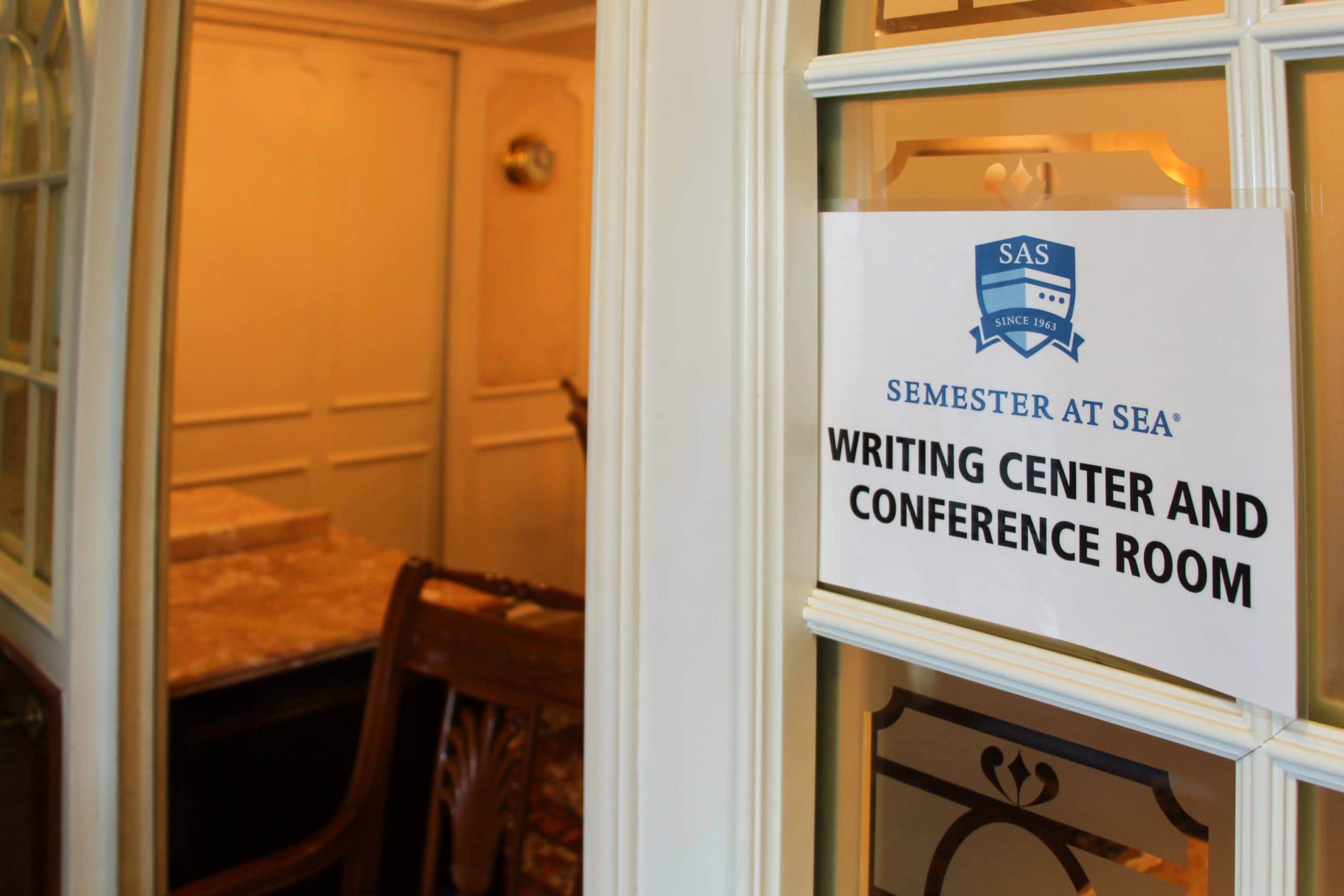
How is teaching onboard the MV World Odyssey different than at your home institution?
“I think we use a lot of the same critical thinking skills, but I think being on the ship makes my students a little more aware because they see as well as read. At home they are reading textbooks and looking at how to analyze them but on the ship they can visualize it because we are seeing what we’re reading. I think they’re more engaged and the visual interpretation helps them understand more about the author’s style and purpose when writing. They also have a little more respect for the differences between the texts. It definitely is more real.”
Where are you most excited to visit and why?
“Probably Myanmar. I think there’s a lot of stereotypes about it and a lot of political turmoil. It’s not necessarily a country that I would consider for a vacation, but it has such a rich culture and history. There’s a huge Hinduism undertone because it has such an influence from India, so I’d like to see that. Any time you go to a place that’s off the beaten path, you learn the most.”
